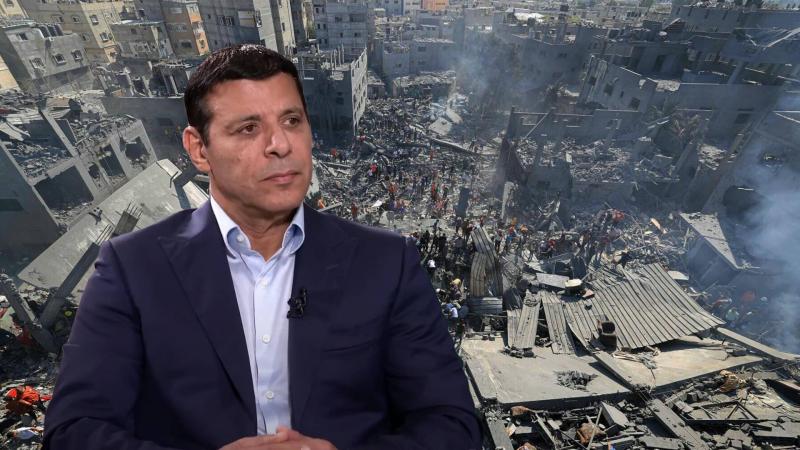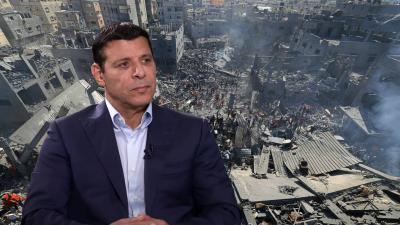American and Arab officials, diplomats, and analysts have confirmed that Israel risks embarking on a long-term armed and bloody confrontation if it defeats the Islamic Resistance Movement (Hamas) and occupies the Gaza Strip without a credible withdrawal plan and a path towards the establishment of a Palestinian state in the post-war period. Two American officials, four regional officials, and four diplomats familiar with discussions indicated that all ideas proposed by Israel, the United States, and Arab countries thus far for managing the post-war phase in Gaza have not gained widespread support, raising concerns that the Israeli military could slip into a long-term security operation.
While Israel maintains control over northern Gaza, some officials in Washington and Arab capitals believe that Israel is ignoring lessons learned from the U.S. invasions of Iraq and Afghanistan, where swift military victories were followed by years of armed violence. Diplomats and officials indicate that if the Hamas-led government in Gaza is overthrown and its infrastructure and economy are destroyed, it could lead to angry residents turning to extremism, fueling an intifada targeting Israeli forces in the narrow streets of the strip.
Israel, the United States, and many Arab countries agree on the necessity of ousting Hamas following its attack on southern Israel on October 7, which resulted in around 1,200 deaths and approximately 240 hostages. However, there is little consensus on a viable replacement. Arab countries and their Western allies have posited that the Palestinian Authority is the natural candidate to play a larger role in Gaza, with its population estimated at about 2.3 million. Yet, the credibility of the PA, governed by Fatah under President Mahmoud Abbas (87 years old), has been severely damaged due to its loss of control over Gaza to Hamas in the 2007 conflict, as well as its failure to halt the expansion of Israeli settlements in the West Bank and accusations of corruption and inefficiency.
Israeli Prime Minister Benjamin Netanyahu stated that the current form of the Palestinian Authority should not take responsibility for Gaza, claiming that the Israeli military is the only force capable of eliminating Hamas and ensuring that terrorism does not return. Israeli officials insisted after Netanyahu's statements that Israel does not intend to occupy the Gaza Strip.
Mohammed Dahlan, who served as the security chief for Gaza until the Palestinian Authority lost control of the territory to Hamas, has had his name suggested for leading a post-war government there. He stated that Israel is mistaken if it believes that tightening its control over Gaza will end the conflict. Dahlan, speaking from his office in Abu Dhabi where he currently resides, said that Israel "is an occupying force and the Palestinian people will regard it as such." He added that Hamas leaders and fighters would not surrender but would prefer to blow themselves up rather than submit.
Arab diplomats and officials stated that the UAE supports Dahlan taking over the administration of Gaza in the post-war period. However, he noted that no one, not even himself, would want to govern a shattered and devastated area without a clear political path in sight. Dahlan pointed to the absence of a vision for Gaza's future from both Israel and the U.S. and the international community, urging Israel to cease its war and begin serious talks regarding a two-state solution.
Although Abbas is not very popular among many Palestinians, there is no agreement on who might replace him in the future. Dahlan is likely to gain acceptance from Egypt and Israel, but despite working closely with the United States during his tenure as security chief in Gaza, an American source indicated that Washington would have some reservations about his return to power. There has been long-standing animosity between him and Abbas and the inner circle of the Palestinian Authority, as well as with Hamas supporters.
Dahlan led a wave of arrests and crackdowns against senior Hamas leaders in 1996 following a series of suicide bombings against Israel. He referenced documents from 1948 to underscore Israel's doctrine of displacement and expulsion, asserting that "leaked documents from intelligence or parties or the finance minister summarize that they do not want the Palestinian people in Palestine," describing the idea of displacement as an ideological concept rooted in Zionism, ongoing since 1948.
Dahlan perceives the Palestinian people as steadfast and unwilling to disperse, stating, "Despite all the oppression, exploitation, and weaponry... the Palestinian people remain, in poverty and hunger, without electricity, water, and medicine, steadfast amidst the wreckage of their homes." He does not believe that the idea of displacement would be feasible or executable, whether it involved moving to Sinai or Jordan, stating, "Even if they carried out this by force with tanks and transported every Palestinian citizen to Sinai, they will return again from the other side. We have no homeland other than Palestine."
Dahlan, in his early sixties, is a leader who rose through the ranks of Fatah until he became a member of its central committee before clashing with President Mahmoud Abbas. He formed a new current called the "Reformist Current" within the movement, joining it with some from Fatah, particularly from Gaza.




